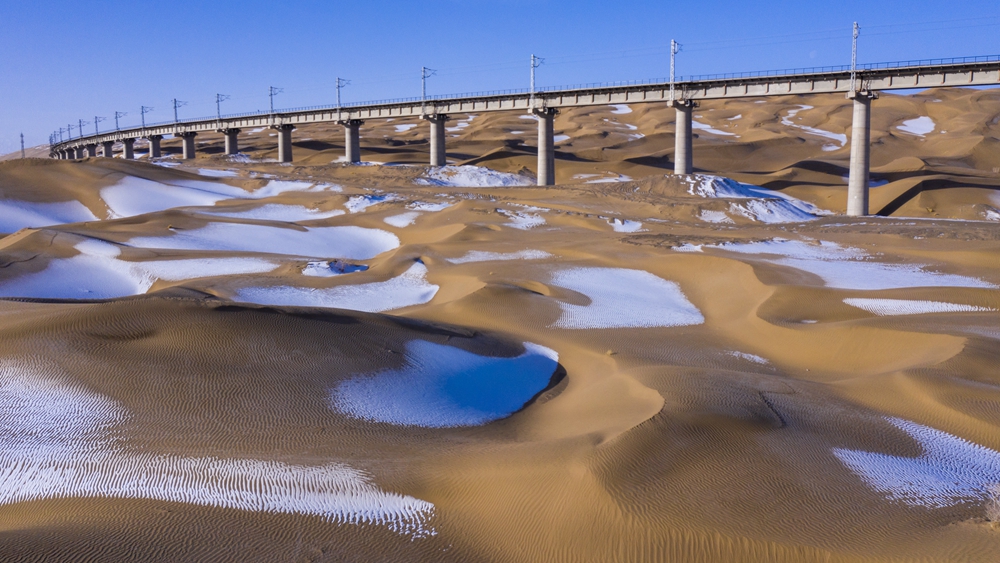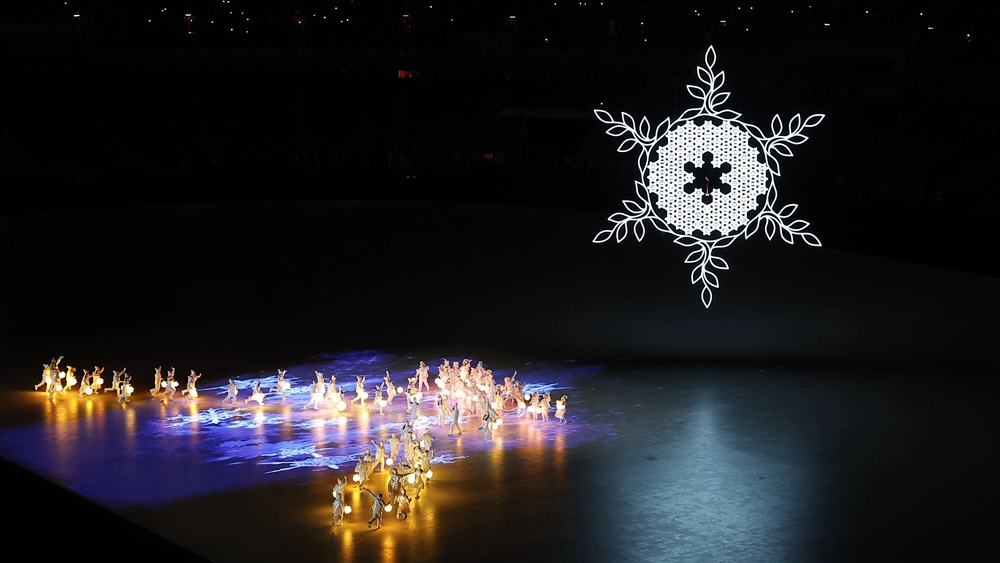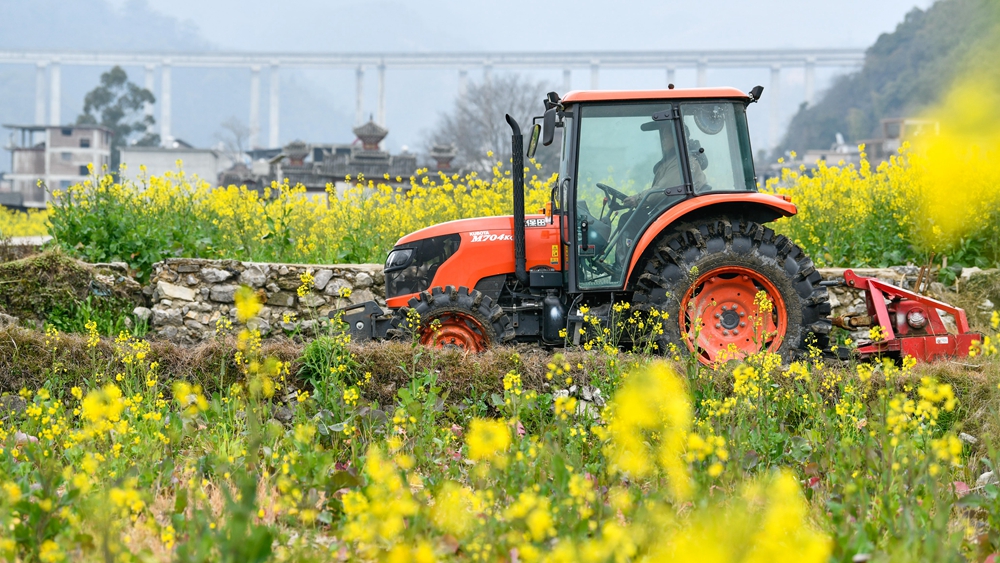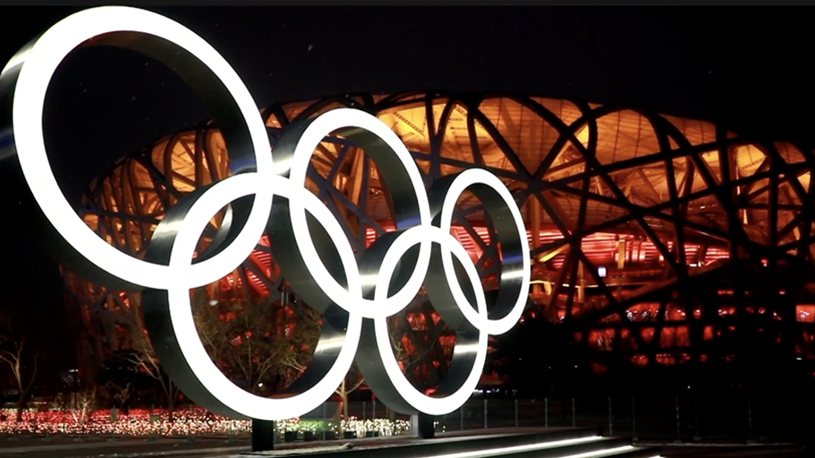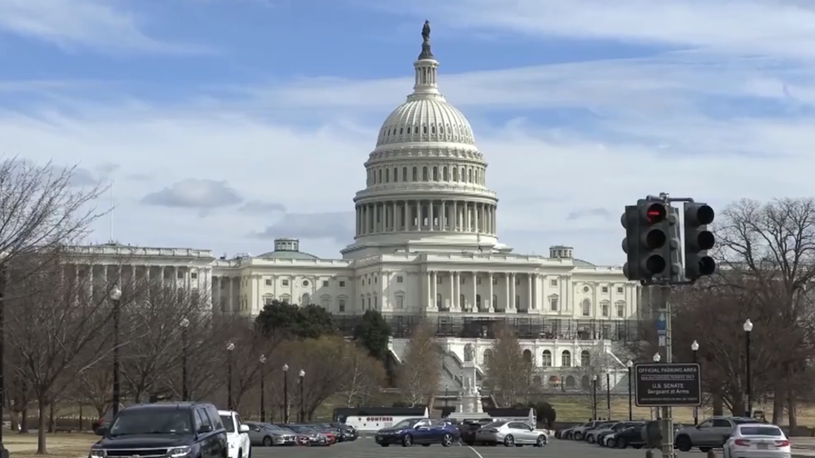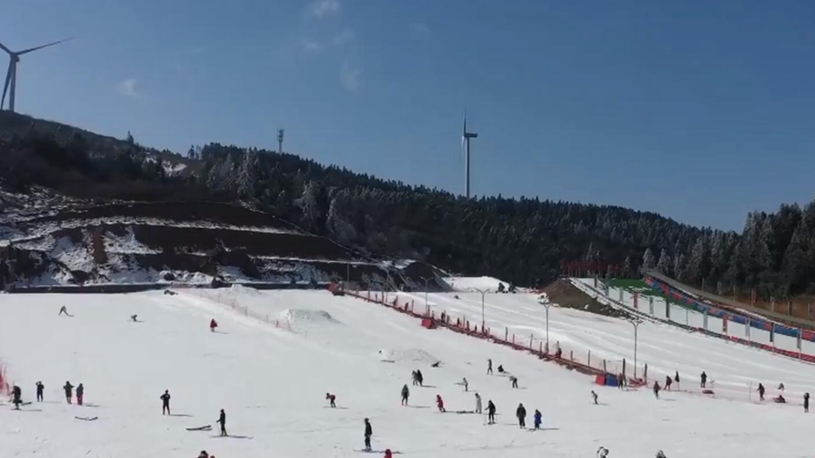Despite all the chaos that characterizes Mbare, a closer look reveals that amid all that chaos are industrious citizens trying all their best to eke out a living in a tough economic environment.
HARARE, Feb. 23 (Xinhua) -- To many visitors, Mbare, which is one of Harare's low-income settlements, seems to be a chaotic and filthy township.
The area's dusty streets, the dilapidated apartment buildings and its crowded roadside markets do not do the settlement any favor.
Despite all the chaos that characterizes Mbare, a closer look reveals that amid all that chaos are industrious citizens trying all their best to eke out a living in a tough economic environment.
As the first settlement built for black migrant workers during the colonial era, Mbare is not only known for its vibrant formal and roadside markets, the place is also rich with historical and cultural significance.
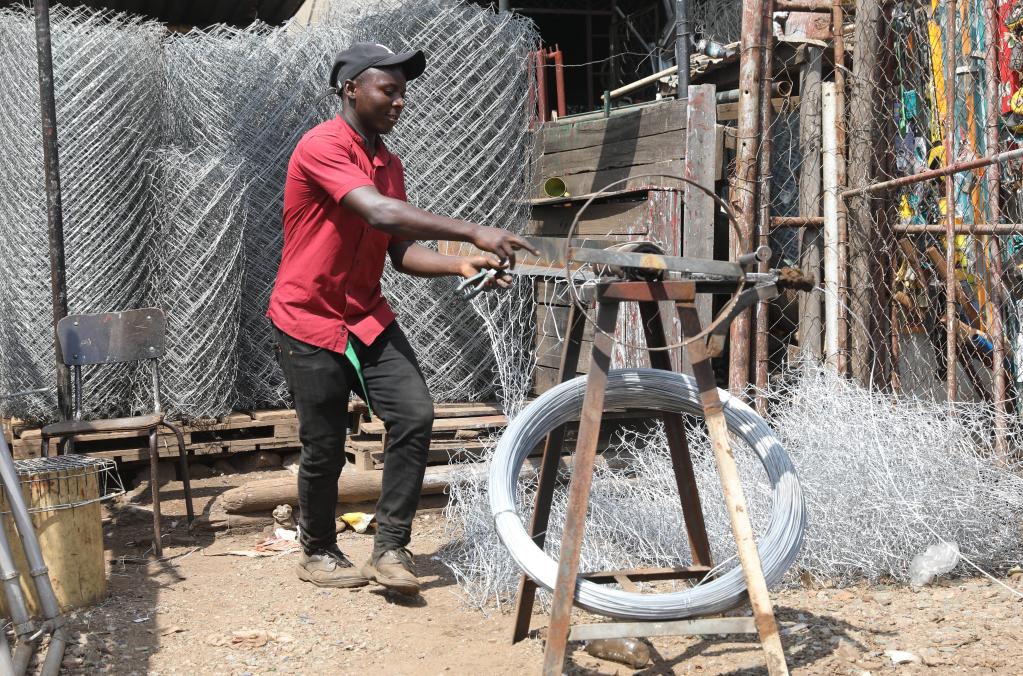
A man makes fences in Magaba, Mbare, Harare, Zimbabwe, on Feb. 8, 2022. (Xinhua/Tafara Mugwara)
After working at an engineering company for more than a decade, Revai Feremenga decided to start his own company that makes grinding machines in the Magaba area of Mbare.
"I chose to come here to Magaba because, firstly, I realized that rent is cheap. Secondly, there are more customers here, that's the arrival point for many people coming to Harare, that's the reason why we left our jobs and came to work here," Feremenga told Xinhua.
"In Magaba no one sleeps with an empty stomach," said 24-year-old Shepherd Simon who makes fences in the Magaba area. "No one who works here goes to bed hungry because you can get money here, it circulates every day."
Formerly known as Harari -- meaning "he never sleeps" in the local Shona language -- Mbare started to expand around 1907 when British colonial settlers built a town called Salisbury, now Zimbabwe's capital Harare.
This created an influx of immigrants coming from Mozambique, Malawi and Zambia looking for employment. Today, Mbare is a melting pot for different cultures.
More than a century later, the historical township is still attracting those seeking greener pastures from all over Zimbabwe.
Despite housing a fair share of Harare's crooks, convenience and its poor-friendly markets make Mbare the preferred destination for shoppers.
The settlement has a thriving economy on its own -- it is the undeclared capital of informal trade in Zimbabwe.
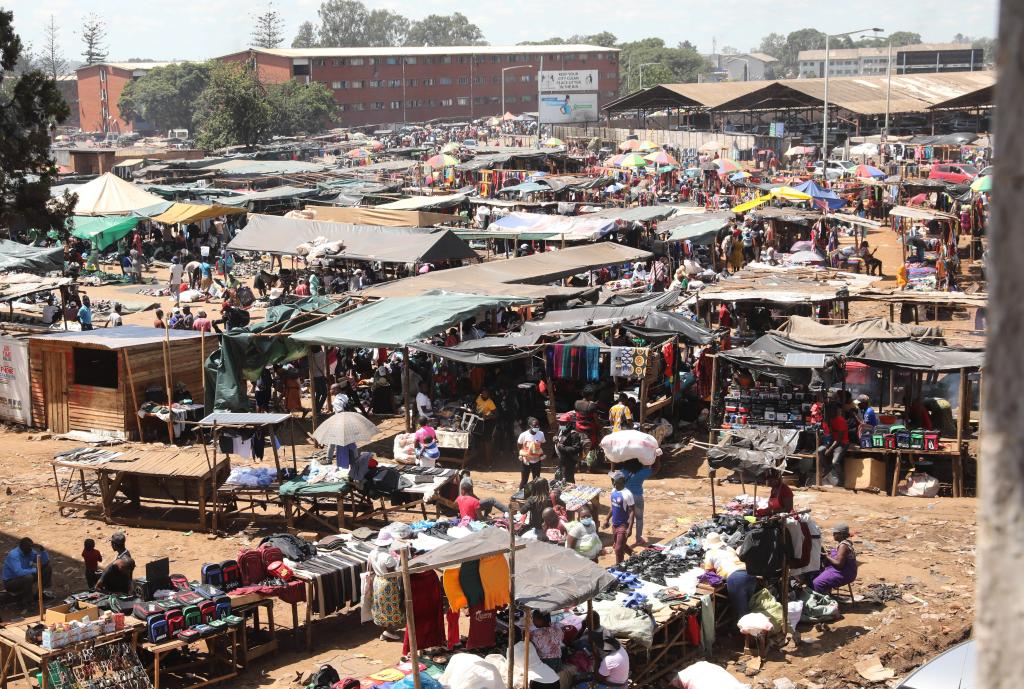
This photo taken on Feb. 8, 2022, shows makeshift markets in Mbare, south of downtown Harare, Zimbabwe. (Xinhua/Tafara Mugwara)
Almost anything one can think of, no matter how bizarre it might seem, can be found or fixed in Mbare.
Through the central bus station, Mbare Musika Bus Terminus, Mbare is directly linked to all major routes in Zimbabwe and is the transport hub linking Harare to all destinations in the country.
Given Mbare's chaotic nature, what many people fail to realize is that the place houses some of Zimbabwe's most talented craftsmen.
Melody Mtukudzi, who sells steel bars in Magaba, said Mbare is the ideal place for business because of its chaotic nature.
"The reason why we opened a shop here in Mbare is that we realized that suppliers frequent this place, you get cheap goods. In addition, Mbare receives many people coming from different places, so business is more viable in that context," she said.
Mtukudzi added that despite having a negative record, Mbare presents countless opportunities to hardworking citizens.
Magaba is the industrial hub of Mbare and is home to thousands of small and medium enterprises.
The area is made up of many traders and manufacturers of various products, from building materials, farming equipment, machinery and household goods.
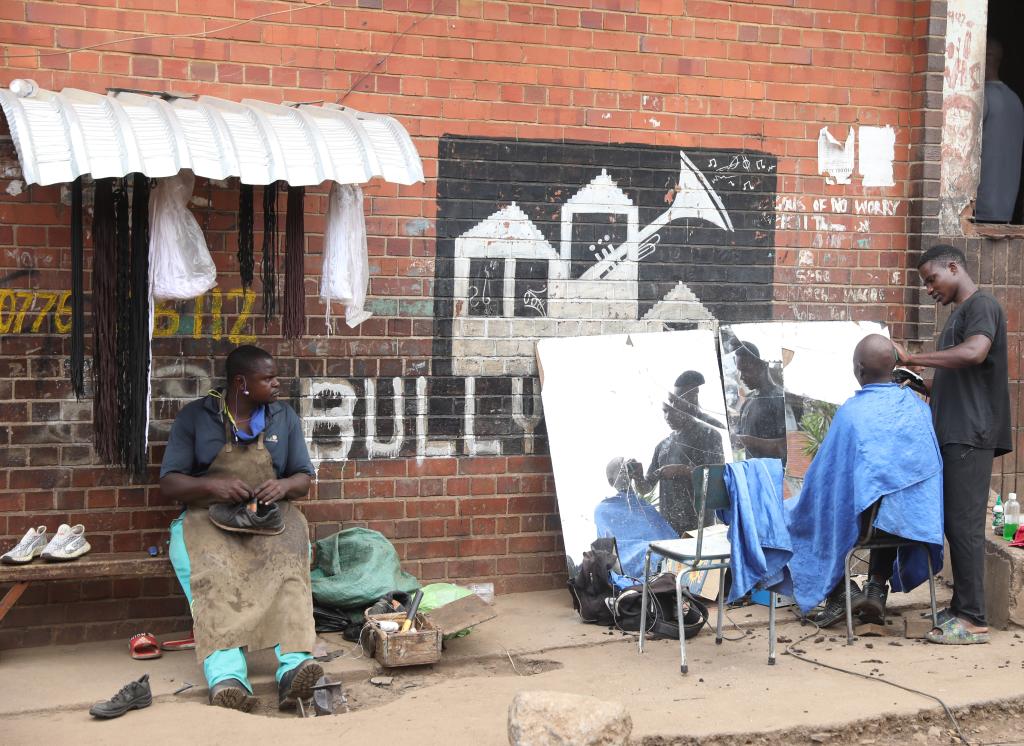
A barber and a shoe repairman work in Mbare, Harare, Zimbabwe, on Feb. 8, 2022. (Xinhua/Tafara Mugwara)
It is believed that every year, millions of dollars exchange hands in the various markets dotted across the area.
Feremenga said despite all the chaos, Mbare is where talent is concentrated.
"I think Mbare is where skilled people are at the moment, that's where talent is, many people came from different companies before they started their own here in Mbare," he said.
As Zimbabwe's once-thriving manufacturing industry collapsed due to economic decay two decades ago, Mbare welcomed many craftsmen who could not be absorbed by the crumbling industry.
Despite being dominated by men, female business owners are thriving in Mbare.
"I think this place is uplifting women a lot because there are some jobs that we were told are a reserve for men, but now as women we are now doing those jobs, like working with steel, now we know about steel more than men," Mtukudzi said.
Enoch Muchafuruka, who has been in the carpentry business for two decades, said he picked the skill from his father who also worked at the same place.
He said many people prefer to buy property in Mbare because of the superior quality.
"The furniture that we make here is durable and lasts for a long time because the boards that we use are durable, and we use a frame on all the furniture that we make, but other companies just use boards so after a short period of time the product will be shaking," said Muchafuruka.
To capitalize on high traffic volumes in Mbare, many small businesses have set up shop on roadsides.
Batsirai Tsombori, a 24-year-old man who sells second-hand clothes, said Mbare is where money is circulating.
"What happens is that, here on the roadside, this is where all the action is, many people don't bother going inside, they will be pursuing their errands so they just want the convenience of roadside markets," he said.
While Mbare is arguably a hub of enterprising business owners, the area is also marred with controversy.
Being the hub of informal traders makes the area a target for law-enforcement agents who often conduct raids seeking to bring sanity to the area.
The government is also pursuing a Mbare urban renewal project that seeks to rehabilitate and modernize the suburb's dilapidated infrastructure.


